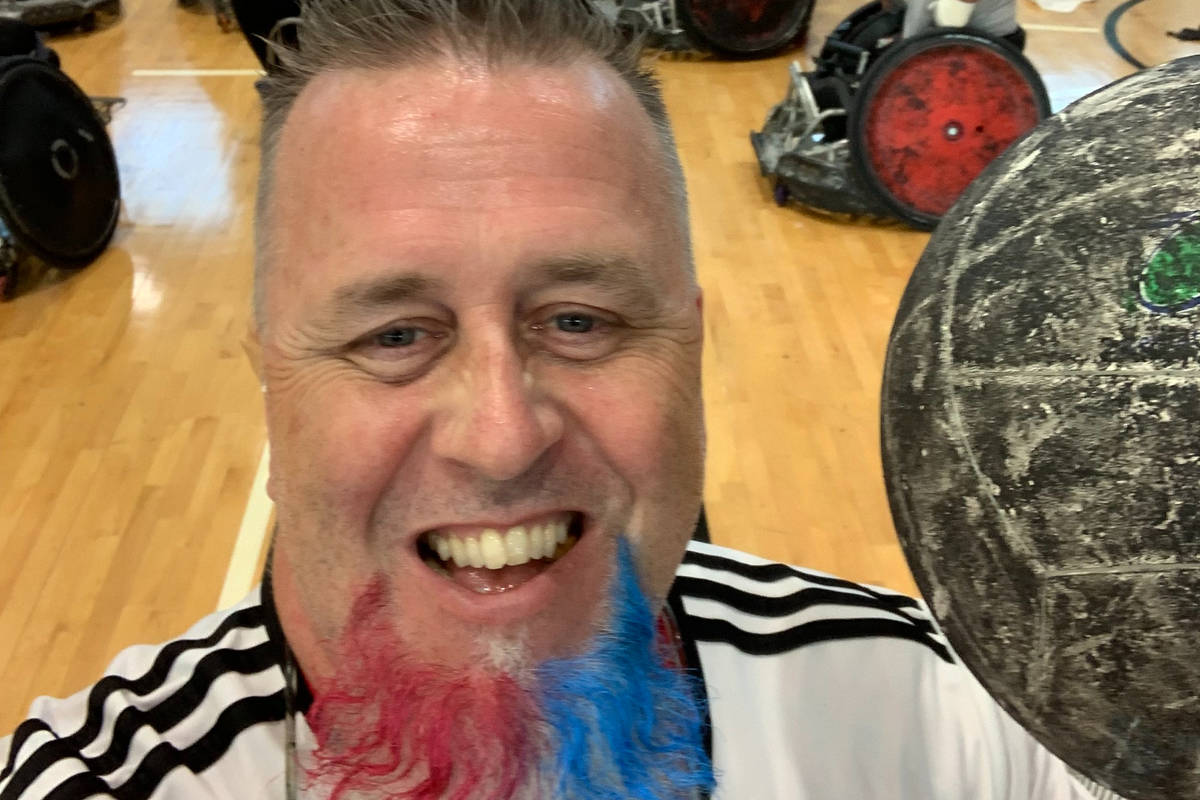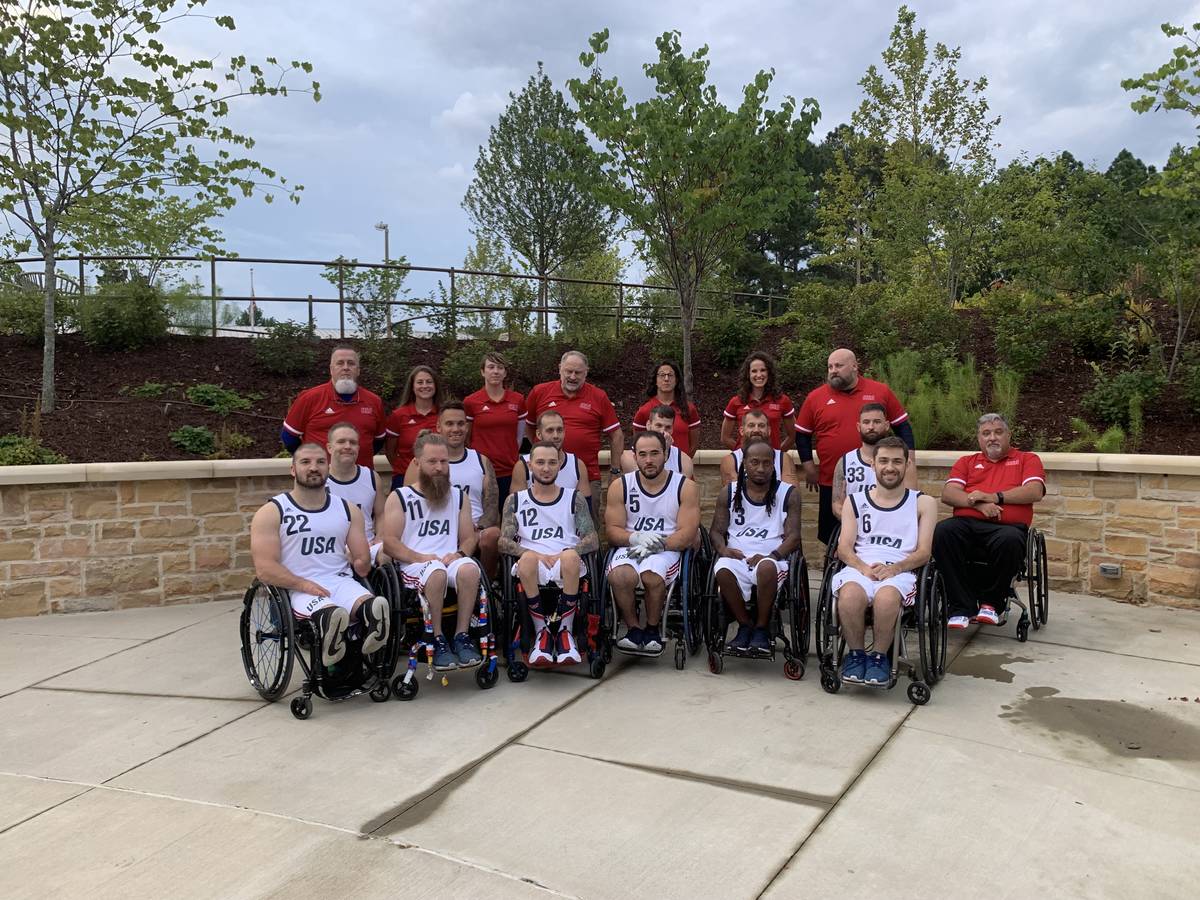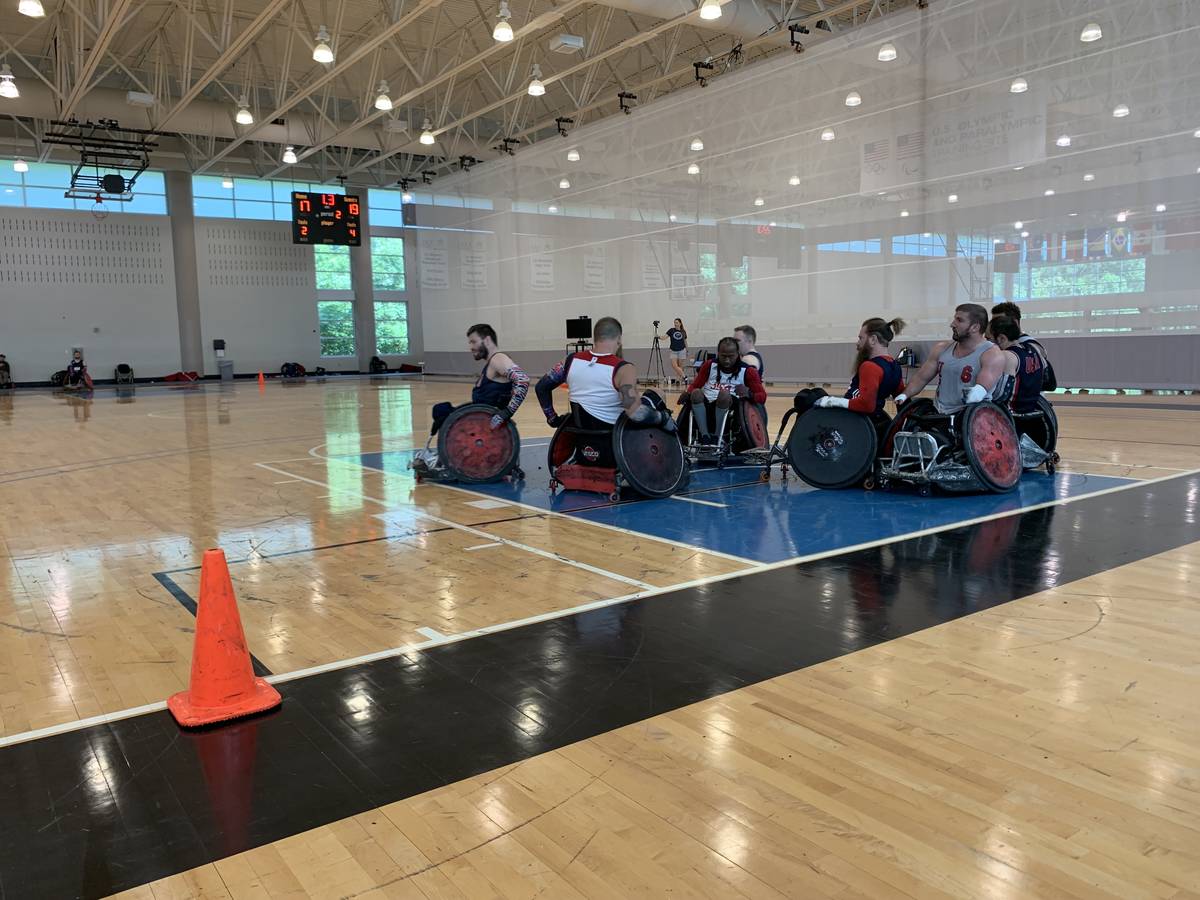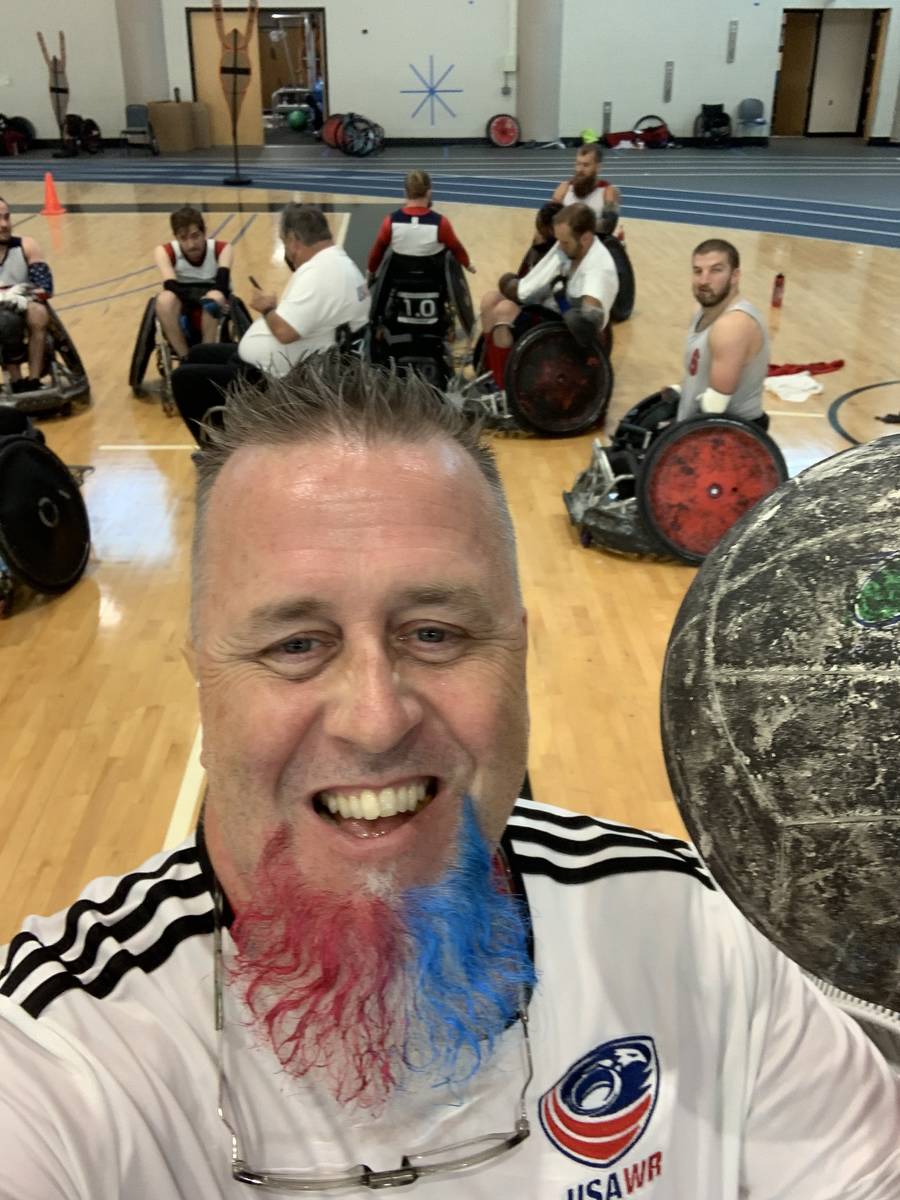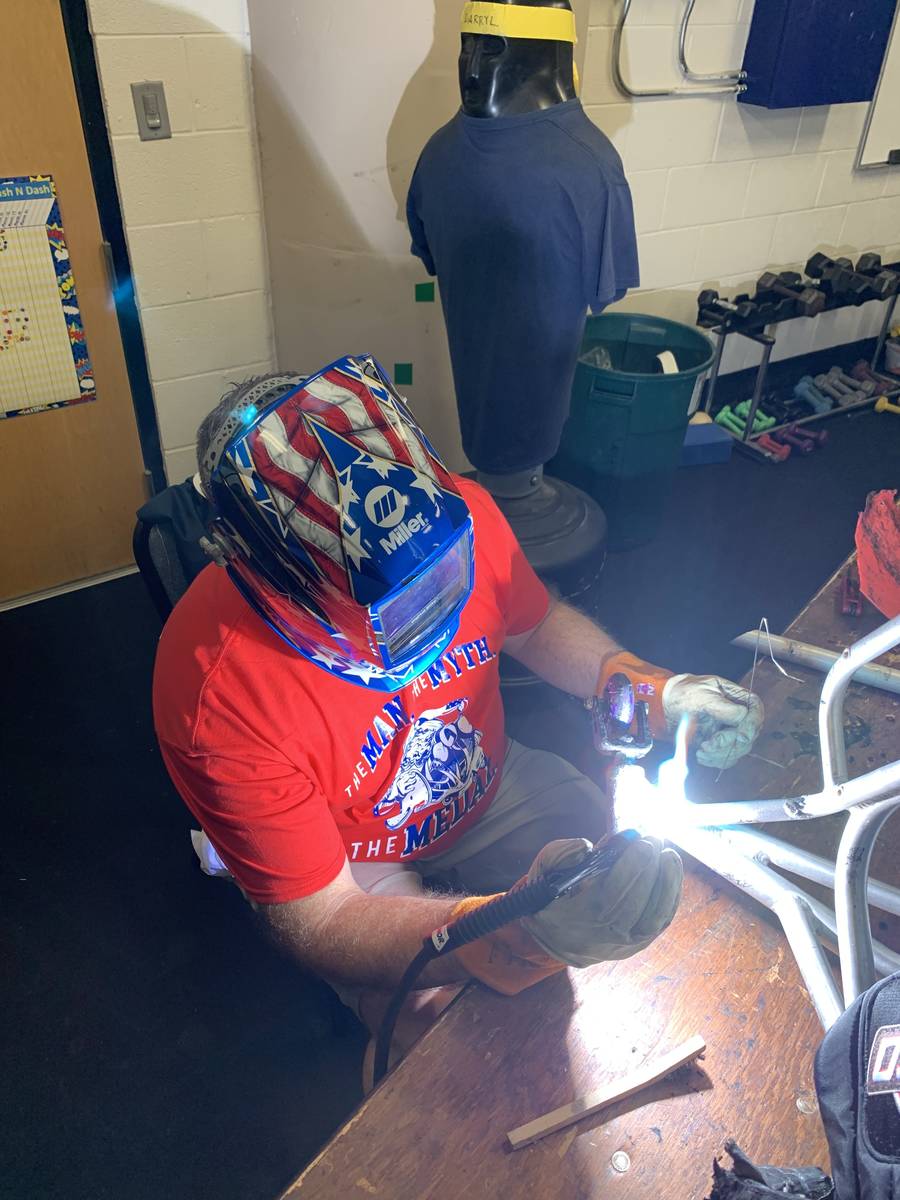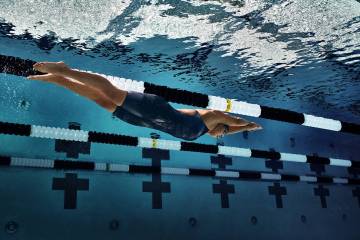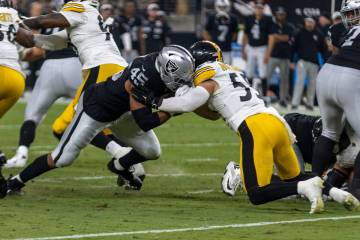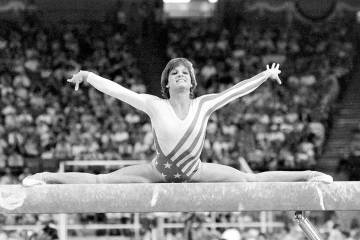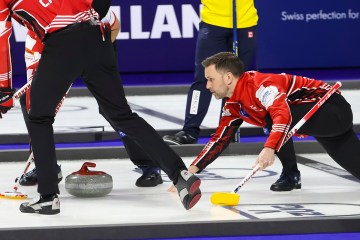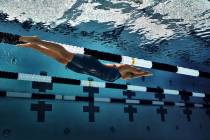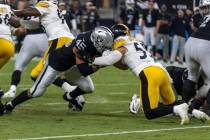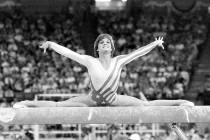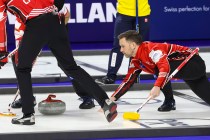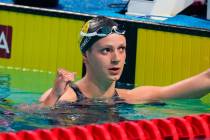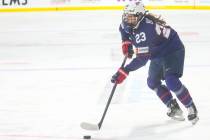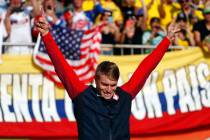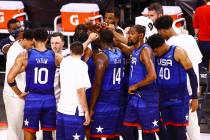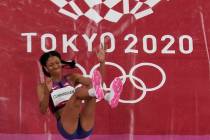Las Vegas native in 4th Paralympics as equipment manager
Bob Murray was a day from leaving for Tokyo, and he already twice packed and unpacked his two bags.
Later, after a workout, he would pack again.
He was like someone nervously preparing for a first-time trip to an exotic locale full of unknowns, but going to the Paralympics is nothing new for Murray. This is his fourth trip as an equipment manager on the U.S. wheelchair rugby team.
Murray, a Las Vegas native who went to Western High School and UNLV, never thought he would be traveling globally with this sport when he first got involved around the turn of the century and greatly appreciates each trip, each moment.
Thus all the packing and unpacking.
“It feels like Christmas Eve,” Murray said. “You’re that kid that keeps looking at your watch to see what time it is so you don’t miss the bus to the airport.”
The Paralympics’ opening ceremony is Tuesday, and the U.S. opens pool play against New Zealand at 7:30 p.m. PT.
Murray, 51, retired last year from the Las Vegas Parks and Recreation Department, where he worked since 1994 and was involved in the adaptive recreation program designed to aid those with disabilities who wish to participate in athletics.
He began coordinating wheelchair sports around 2000, and in 2005 put together a youth clinic that drew 50 to 60 athletes from around the country. Some Paralympians attended, as did national team coach James Gumbert.
That clinic led to the formation of Las Vegas-based tournaments, which grew in popularity with wheelchair rugby competitors. The success of those tournaments helped land Murray a spot in 2006 as manager of the U.S. developmental team, which essentially serves as a farm club for the national squad.
The call that changed Murray’s life came in February 2008 when Gumbert promoted him to the national team to replace a staff member who couldn’t make it to that summer’s Paralympics in Beijing.
“Just thinking about it, I still get goosebumps,” Murray said. “It’s really crazy and emotional to get called up to the big leagues. It’s really a phone call that I’ll never forget and cherish forever.”
The move to the majors wasn’t just a cup of coffee. Murray has stayed long enough to enjoy the entire pot.
He was there when the U.S. won gold in Beijing, bronze in 2012 in London and silver five years ago in Rio de Janeiro.
TV coverage of the Paralympics continues to increase, and NBC’s properties this year will air an unprecedented 1,200 hours. It’s doubtful the Paralympics will ever get near the attention of the Olympic Games, but Murray is happy more people are paying attention.
But he also thinks people should watch for the right reasons, saying Paralympians at their core are no different from the able bodied who compete on a global stage.
“The athlete is always going to be an athlete no matter if they’re in a wheelchair or use crutches or an amputee,” Murray said. “Whether you compete in the Olympics or whether you compete in the Paralympics, you are an Olympian. People need to wrap their heads around that because people tend to see the chair first or they see the disability first, but it needs to be about the person, and it should always be person first.”
Traveling the world wasn’t what Murray envisioned when he got involved with wheelchair rugby. He certainly didn’t have a plan in place that would lead him to Asia, Europe and South America.
“You really have no idea where the road’s going to take you,” Murray said. “For this to happen to me was the most amazing thing ever outside of my wife and kids.”
Contact reporter Mark Anderson at manderson@reviewjournal.com. Follow @markanderson65 on Twitter.
Tokyo Paralympics
U.S. wheelchair rugby schedule
All times are Pacific
Tuesday, 7:30 p.m. — Pool play vs. New Zealand
Wednesday, 7:30 p.m. — Pool play vs. Canada
Friday, 1:30 a.m. — Pool play vs. Britain
Friday night/Saturday morning — Medal round begins



